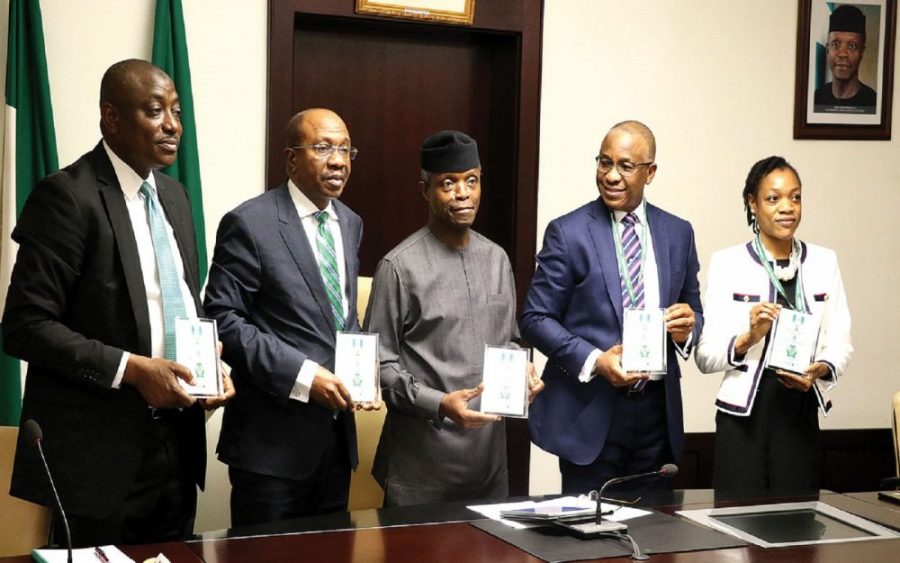Nigeria’s Federal Government has just signed over 21% of its ownership rights in the Nigerian Security Printing and Minting Company (NSPM) to the Central Bank of Nigeria, with Vice President Yemi Osinbajo explaining why.
The formal agreement transferring the shares was signed yesterday in Abuja between the CBN Governor, Mr Godwin Emefiele, and the DG of the Bureau of Public Procurement, Mr Alex Okoh. Nigeria’s Vice President also attended in his capacity as the Chairman of the National Council on Privatisation.
This development was later confirmed in a Twitter post made late Tuesday on the Bureau of Public Procurement’s Twitter page.
The 21% NSPM shares are valued at about N12.69 billion. Now with its divestment, the Vice President is hopeful that synergy between the public and private sectors would be ensured, even as experts with the necessary technology are brought in to run the company.
He further stated that with this development, the Government can focus on its regulatory and incentivising roles even as the CBN and its technical partner, De La Rue, bring about the technological transformation needed at NSPM.
“Security printing has taken new dimensions. it is no longer what it used to be. As a matter of fact, there are those who think that today there is more of technology than merely security printing. If you look at some of the cards that are being printed today, the chips are not just security; they are actually technological assets.
“So, there are new assets and new dimensions, and there are new ideas, and it’s just the private sector that can really be at the cutting edge of technology and innovation.” – Osinbajo
Also speaking at the event was the CBN Governor (Godwin Emefiele) who revealed that the NSPM is now printing all the currencies needed in Nigeria; even as it is now better positioned to produce for other countries within the ECOWAS region.
Meanwhile, some Nigerians are puzzled by the transfer of shares to the CBN; wondering why such amounts to a transaction.
MINT belongs to #Nigeria
CBN belongs to #Nigeria
How can one of your company buy another of your company?
Somebody should educate me please I don't understand this.— Evang, Peter (@EvangPeter1) September 18, 2018
